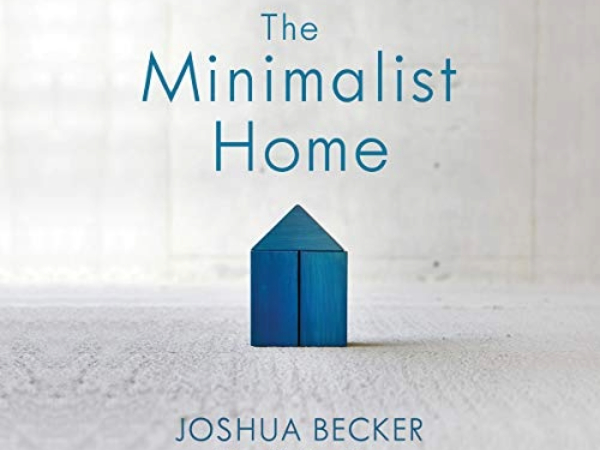
Would you like to spend less time deciding what to wear, less time looking for the things you need, and less money buying THINGS in the first place? Would you like to have more time and money to achieve your goals and pursue your dreams? With his book, The Minimalist Home: A Room-By-Room Guide to a Decluttered, Refocused Life (WaterBrook, 2018, 239 pages), Joshua Becker provides the system and tools you need to do this and more.
In the book, minimalism is defined as “the intentional promotion of things we most value and the removal of anything that distracts us from them.” In a word, this means “optimizing” your possessions to achieve your desired goals. Becker differentiates minimalism from organization. If you organize your possessions, you will eventually deal with those items again. If you minimize, then some items leave your house forever; you will not have to think about them again.
The author believes, “there is more joy to be found in owning less than we can ever find in accumulating more” and that “owning less creates an opportunity to live more.” While he acknowledges there are other books on the subject, he promotes his “Becker Method” as a way to divide the process into manageable sections, see the benefits right away, and build momentum before deciding the fate of those sentimental items that you don’t use and possibly have not even seen in years.
Where to start
Becker advises starting in spaces like living rooms, bedrooms, clothes closets, and bathrooms before tackling more difficult areas, like the kitchen, dining room, office, storage areas, garage, and yard. He encourages you to handle each item and consider how you came to own it. Do you need it? Does it have aesthetic or sentimental value? Do the benefits of owning it exceed the burden? According to the author, “If you’re honest about the relative weights of the benefits you get from your possessions and the burdens they place upon you, I believe you’ll decide that many of your possessions really aren’t worth holding on to.” When the decision is difficult or members of your household disagree, Becker suggests you experiment by doing without that item for a period of time. If, after this trial period, “you find yourself wishing you had the item because it would have come in handy or you otherwise missed it, then maybe you should keep it.”
There is a chapter devoted to each type of room with step-by-step instructions and a checklist at the end to evaluate your efforts. For instance, there are just two questions for the guest room: (1.) Is there enough space in my guest room to comfortably accommodate all of the belongings my overnight guests bring with them? and (2.) Is the space relaxing and restful for them? By contrast, the home office checklist has seven questions. As a complement to the detailed instructions, the author spreads data, details, examples, and inspirational testimonials in sidebars throughout the book.
Becker encourages his readers to sell, donate, and recycle as many items as possible. However, he acknowledges that some things will end up heading to a landfill. He writes, “Let your regret about how much you have to throw away reinforce your determination not to buy so much in the future.”
There are benefits to this process within your current space. With less clutter, any home is more relaxing and less stressful. There will be a “minimalism dividend” where you spend less money, time, and energy on repairs, maintenance, organization, and cleaning. Success can be motivational, too — you may find you no longer need as large a home. There is an entire chapter on the substantial savings and potential freedom to be found in downsizing your living space.
The author’s enthusiasm is evident as he has found minimalism to be life-changing. “It creates a context where it’s easier for you to change yourself. It offers you abundant resources that you can use to try to accomplish whatever you want,” Becker writes. “Your home has purposes, each room in the home has purposes, and the possessions in those rooms should serve those purposes. Most importantly, you have purposes too. Minimalism will help to reveal those purposes to you and make it easier for you to pursue them.”
